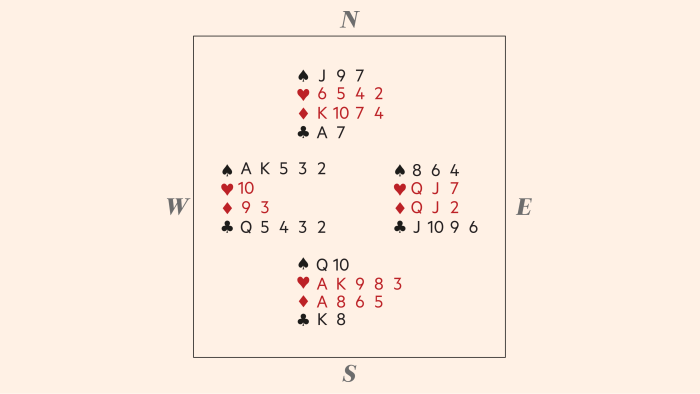Superior play foils false-carding, canny opponent

Roula Khalaf, Editor of the FT, selects her favourite stories in this weekly newsletter.
Here is another example of a contract where, without compelling opponents to help, declarer faces too many seemingly inevitable losers. Success is dependent upon an accurate execution of a relatively simple plan . . .
Bidding
Dealer: South
Love all
East’s raise to 2S is unwise; support to the 2-level of a simple overcall should include an honour. South’s 3D was a game-try, accepted by North.
West led ♠AK and switched to 9♦, an unnecessarily risky defence but, here, not injurious. Declarer played low from dummy and East false-carded with Q♦, South winning with A♦. Declarer felt that she faced a diamond loser and that trumps would have to split 2-2. When they didn’t, however, South was too good a player to fall for East’s ruse. She played a club to dummy’s ace, cashed J♠, discarding 5♦ from hand, and then played back to her K♣. With the black suits eliminated, she now led a third round of trumps; East won.
Having set up the position perfectly, East faced an unpalatable choice: he could return either a diamond around to dummy’s ♦K10; or lead a club which would provide a ruff and discard: South could pitch her other losing diamond from hand and win the trick by ruffing with dummy’s final trump. Hand under control throughout, resulting in an excellent score.
Read Paul’s previous Bridge columns at ft.com/bridge-card-game
Comments